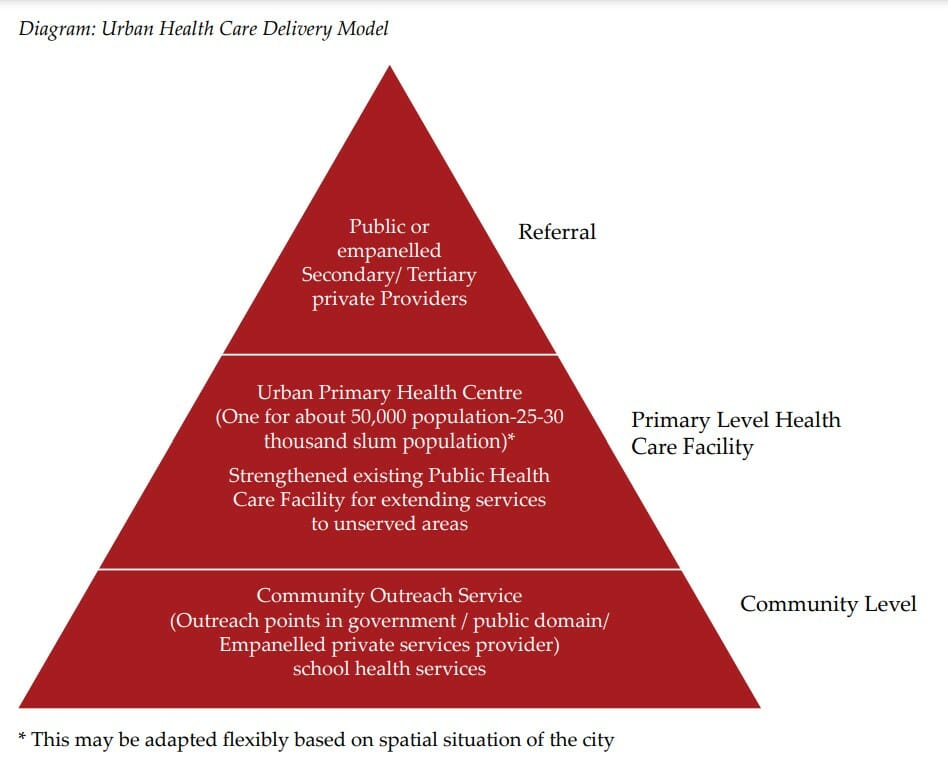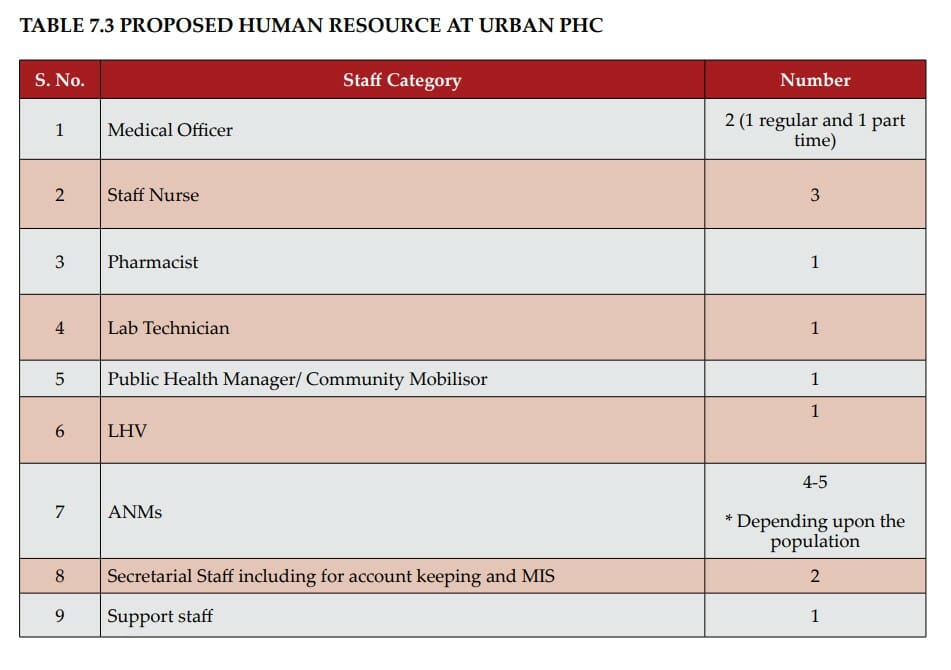Are you someone who knocks on the doors of private clinics or large private hospitals even for a fever or minor ailments? Do you know there are government-run Urban Primary Health Centres (UPHC) in Chennai with facilities to treat minor ailments and for the diagnosis of major illnesses?
The city’s public healthcare infrastructure came under the spotlight during the pandemic as it was at the forefront of fighting the virus. The major government hospitals took in patients while the UPHCs served as points for screening and vaccination. It was only then that a majority of residents came into contact with the public health system in the city.
Various efforts have been made over the years to expand the range of treatments offered in public healthcare facilities and make them accessible to all. As a result, the public healthcare infrastructure in Chennai has strengthened over the years and is a source of quality care.
Read more: All you need to know about organ donation in Chennai
UPHCs in the healthcare pyramid in Chennai
The primary health centres in the city are established as part of the National Urban Health Mission (NUHM) to serve as a hub for preventive, promotive and basic curative healthcare.
Accordingly, Chennai has around 140 UPHCs spread across 15 zones that cater to every 50,000 residents. While UPHCs provide primary health services, there are 16 Urban Community Health Centres (UCHCs) that cater to every 2.5 lakh residents and serve as secondary health care providers.
The patients from UPHCs will be referred to UCHCs and those from UCHCs will be referred to tertiary health care facilities like the Government Kilpauk Medical College Hospital, Government Stanley Medical College Hospital or Rajiv Gandhi Government General Hospital depending on the patient’s health needs.

According to the NUHM’s framework of implementation, the urban primary health centres should have two medical officers, three staff nurses, one pharmacist and one lab technician apart from other staff. Apart from the services provided at the UPHCs between 8 am to 4 pm, polyclinics also function between 4.30 pm to 8.30 pm where specialists like Obstetricians, Gynaecologists, Paediatricians and Psychiatrists are available for consultations at a given time.

While the UPHCs have basic laboratory facilities for blood tests and Ultrasonography, the UCHCs have fully equipped laboratories for biochemistry, microbiology and haematology and X-Ray machines. Based on the diagnostic needs of the patients, referrals are made. Notably, the pharmacies at these centres also provide medicines free of cost.
What are the facilities at your UPHC?
Some of the services rendered in 140 Urban Primary Health Centres include
- Treatment of minor ailments
- Diagnosis of major illness and referral to the higher institution if necessary
- Non-Communicable diseases such as diabetes and hypertension are detected both by active and passive surveillance and those who require continuous medical treatment are registered and treated in the nearby UPHCs as per the norms. Complicated cases are referred to tertiary-level hospitals.
- Antenatal Registration and provision of antenatal care, intranatal care and postnatal care are given to the mothers. Ultrasound for pregnant women, disposable delivery kit for safe delivery, nutritious diet for delivered and sterilised mothers.
- Identification of high-risk mothers for safe institutional deliveries, timely referral of high-risk mothers and normal mothers for safe confinement in the UCHCs.
- Promotion of exclusive breastfeeding
- Immunization for under-five children
- Growth monitoring and identification of developmental delay and referral
- Cervical and breast screening for Cancer
- Treatment for other Gynaecological minor ailments
- Basic laboratory tests
- School health programme that includes health check-ups for the children studying in Corporation schools
- Implementation of government special programmes like Pulse Polio, National Deworming Day, intensified diarrhoea control fortnight programme, vitamin A camp, and special immunization programme for the migrant population.
- Implementation of government schemes like Moovalur Ramamirtha Ammaiyar Thirumana Nidhi Udhavi Thittam and Dr Muthulakshmi Reddy Magapparu Nidhi Udhavi Thittam.
Read more: Dengue in the time of COVID: Stiff challenge ahead for Chennai’s civic and health workers
In addition to the services rendered at UPHCs, the 16 Urban Community Health Centres also provide the following services
- Provision of minor surgical services
- Diagnosis of major illness and referral to the higher institution if necessary
- Provision of Antenatal care, conduction of delivery – normal & caesarian (24×7)
- Provision of normal newborn care
- Provision of sick newborn care
- Provision of baby gift set
- Provision of Permanent Family Welfare procedures
- Provision of temporary contraceptive methods
- Processing of sterilization failure cases for compensation
Many perks of going to UPHCs in Chennai
Rajanikhil Malaramuthan, a resident of Adambakkam, said that his family never visited a hospital for fever or cold. “We came to know about the Urban Primary Health Centre (UPHC) in our area only when we had no other choice but to take the COVID-19 vaccine from there. Until then we had the stigma that these government hospitals would not be maintained properly or clean, or that the service would be poor. Honestly, we were amazed at how clean the hospital was,” he said, adding that the next time his mother was sick, they visited the UPHC to consult with the physician.
Many residents of Chennai echoed Rajanikhil’s opinion that their idea of a government healthcare facility changed after they visited the UPHCs for COVID-19 vaccination.
45-year-old Kanchana, who came to know about the UPHC in Kodungaiyur while getting tested for COVID-19 in 2020, has been regularly accessing the healthcare facilities from the same UPHC. “While private hospitals were keen on collecting exorbitant charges, it was the staff at UPHC who gave some reassurance that I was going to get better,” she noted.
Even after recovering from COVID-19, she has been going for regular check-ups for hypertension and diabetes to the same UPHC. “The staff at UPHC registered my credentials and gave me a card called ‘BP Passport’ in which the readings of my blood pressure and blood sugar levels are recorded at regular intervals. After the check-up, they will give me the medicines that I shall need until the next check-up, free of cost,” said Kanchana, who had previously been spending at least Rs 3,000 per month to buy the same medicines through private clinics.
She also noted that the primary health centres she visited had ramp facilities and separate rooms for blood tests, antenatal care and consultations with doctors. These processes, as well as system of purchase from pharmacies, were organised well.
While many districts across Tamil Nadu conduct deliveries at the UPHCs, the UPHCs in Chennai monitor pregnant women until delivery but refer them to the UCHCs for deliveries.
P Divya Bharathi, a 22-year-old young mother, said that she came to know about the maternity care facilities in UPHCs through her neighbours. A Chennai native, she had moved to Kodaikanal after her marriage.
She visited a UPHC in Kodaikanal for the first time as registration under the Pregnancy and Infant Cohort Monitoring and Evaluation (PICME) system has been mandatory to receive birth certificates. PICME is a system deployed by the Tamilnadu government to track all pregnant women from the inception of pregnancy until a birth certificate is obtained for the newborn.
“The Auxiliary Nurse and Midwife (ANM) of the UPHC in Kodaikanal kept a check on me until I moved to Chennai. We then used the same registration card to access the facilities from the UPHC in Valasaravakkam in Chennai. At the time of delivery, they referred me to the nearest UCHC. Since then, the ANM in Valasaravakkam UPHC has been keeping track of my postnatal care and immunisation,” said Divya.
“I was consulting at both UPHC and private hospital parallelly just so I can be prepared to handle emergencies. The private hospital gave an estimate of Rs 45,000 for normal delivery and Rs 75,000 for cesarian excluding the medicine and hospitalisation charges. The same facilities, in addition to disposable delivery kits for safe delivery, a nutritious diet kit, a baby gift set, postnatal care and immunisation, were all provided free of cost at these UPHCs and UCHCs. I was able to save a huge amount and can now use it for my child,” she added.
In addition to the aforementioned benefits, she has also been receiving financial assistance of Rs 18,000 in instalments under Dr Muthulakshmi Reddy Magapperu Nidhi Udhavi Thittam through the UPHC.
Divya’s only complaint about the UPHC was that the paediatricians are available only once a week at a given time slot. As a result, she has had to go to a private hospital in cases of emergencies for the child. “Since the child’s medical history is already recorded at the UPHC, I would prefer to take my child to the same primary health centre in cases of emergencies. However, if I take my child to the UPHC for emergencies, they would refer me to UCHC or the Government Children’s Hospital in Egmore as they do not have a paediatrician on call. As we cannot risk waiting during an emergency, we end up going to a private hospital” she said.
Locating your nearest UPHC in Chennai
Residents can visit the nearest UPHC during working hours to get necessary care or referrals and be enrolled for monitoring.
Dr N Boopesh, Zonal Health Officer of Greater Chennai Corporation, said that all UPHCs use an online application called ‘Simple’ through which the healthcare workers manage patients’ health information. The app is also used to track those with high BP and diabetes and provide follow-up care.
“Once the patient is registered in Simple, their records will be maintained through the app. On average each UPHC gets a footfall of around 200 outpatients in a given day, apart from which community outreach programmes are also carried out,” he said.
The UPHCs play a crucial role in helping Chennaiites access affordable and quality healthcare. Their role may have been recognised by many during the pandemic, but they have actually been performing such functions for many years prior to the COVID outbreak.
Despite being in the state that has one of the best public health infrastructures in the country, the healthcare expenditure of many residents runs into thousands even for simple ailments, as they do not make use of free public healthcare facilities that are available. This can be avoided if more residents approach their local UPHC the next time they feel unwell.
Since the treatment at these facilities is free, the staff tend to act differently. Further, cleanliness and availablity of drugs must be maintained. There has to be a regular visits by the higher officials disguising themselves as patients just to keep the staff on toes.